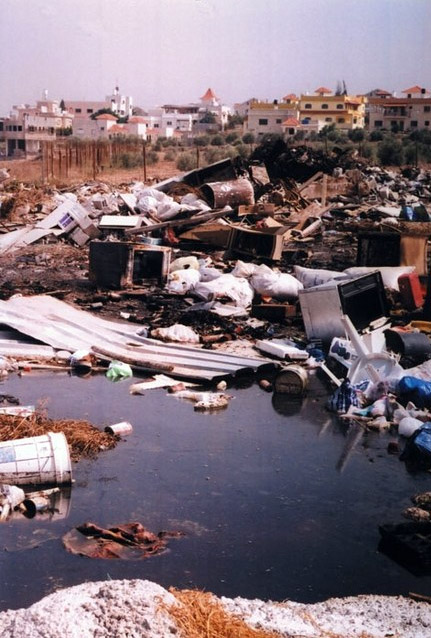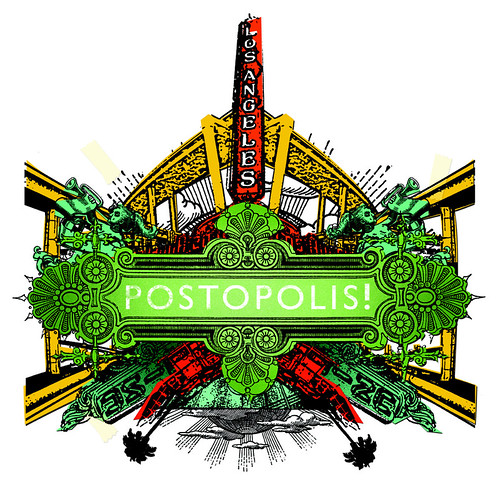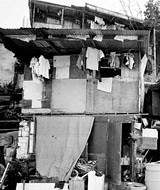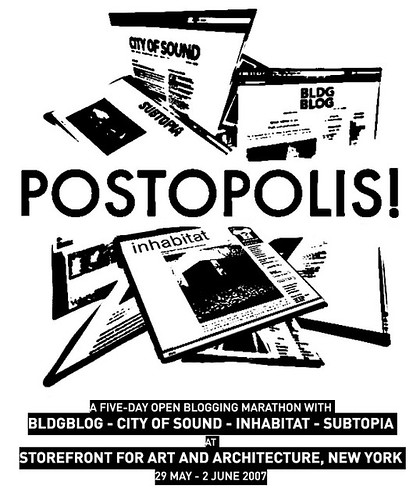Hydrologic border suture

This looks like the ultimate project right now to be a part of in the Middle East – the kind of border zone diplomacy that should be mimicked in regions across the world. Amidst all of the vicious turmoil and violence that grips the Arab community, this is a truly refreshing effort. And in light of the recent underground lake discovered in Darfur – which some say could help lead to a massive pacification of genocide there stemming in part over a scarcity of water resources (not to mention the water wars that may ensue as a result of climate change in regions all over soon enough) – this highlight between Israelis and Palestinians has resounding implications.
Thanks to my architectural storian buddy Orhan who sent word my way, we learn about two mayors on opposite sides of the Israel/Palestinian border who have signed a joint agreement to clean up the heavily polluted Wadi Abu Naar river that runs through both of their towns.

In short, the article explains how Israel’s Baqa al-Gharbiya is “building a sewage system and treatment plant to combat the diseases borne by the river,” while the Palestinian town Baqa al-Sharqiya with little funds will soon extend a pipe into the Israeli plant “when it is completed in the middle of 2008.”
It is a kind of hydrologic border suture.

Water in this part of the world is not only scarce but more tragically it serves as a continual dimension of war. We are reminded by Eyal Weizman in his classic essay, The Politics of Verticality, how the Mountain Aquifer under the west bank, the largest reservoir in the area, has been co-opted by Israelis through an informal subterranean sovereignty over most of the aquifer.

“The 1995 Accord transferred responsibility for the water sector from Israel’s civil administration to the Palestinian Authority. But in practice, the scope of Israeli control of this sector did not change. A Joint Water Committee (JWC) was set up to oversee and approve every new water and sewage project in the West Bank.”

Palestinians, essentially, need to get approval from this committee for any water related action they take, while Jewish settlements can tap the aquifer in any way at any time without requiring the same permission. There is also the physical terrain to contend with, and the hydro-politics of the conflict which Weizman described as allowing both sides to sabotage sewage structures and deliberately spill their waste into each other through valleys and over hillsides: a war of shit.
“Sewage is a political weapon when dislocated from the bowels of the earth to the overground. When shit is invisible underground, it is merely sewage, running through a technically complex system of public plumbing. But let it only break loose over the surface, and sewage becomes shit again.
The latitudinal co-ordinates affirm the nature of the substance. When sewage overflows and private shit, from under the ground, invades the public realm of the street, it becomes simultaneously a private hazard and a public asset – to be used as a tool by the authorities.”
Makes you realize how significant this little joint-mayors water-works agreement is, and hope it can have an even more significant ripple effect.
The "Good Water Neighbors" (GWN) project was initiated by Friends of the Earth (FOE) Middle East – a tri-national environmental collective of Jordanians, Palestinians, and Israelis who work together on environmental and hydrologic border issues in attempt to resolve the conflict, reclaim the spaces of hydrology as an arena for healing rather than war.
Environmental Justice, logic over politics, progressive border suture. Sounds revolutionary to me.
Like the article suggests, it is taking a green approach to the Green line. But not just green in that generic eco-centric superficial/commidified kind of way, but in as far as it has retooled the political basis of the area’s access to water, achieving a new diplomatic model in addition to a system for sharing water across borders - real green geopolitics.
Anyway, I’m cutting this post short, but want to leave it with these final statements from the two mayors in the west bank.
Hussein said issues of health and the environment are borderless problems that require a borderless solution. "The sharing of air and water requires co-operation between the two sides." Wald agreed. "It is for the people ... without any political circumstances."
Once the environmental project is completed, Edelstein said the cross-border partnership will have a series of positive knock-on effects. "The environment is a lot of things. It's health, it's sustainability. It's not just making your town green, it's co-operating on very real issues."
Wald said: "The idea is that such projects can push politicians to understand that co-operation gives you the opportunity to go further toward peace here in the Middle East.
"We start with small steps and these small steps can lead us to much wider and longer steps later on."
Why aren’t there more examples of this kind of grassroots commitment along the U.S./Mexico border? Or, are there? I know there have been others in the Middle East and other places I am sure, but this seems like a perfect example of using environmental justice as a launching pad for greater political change and conflict zone resolution.







0 Comments:
Post a Comment
<< Home